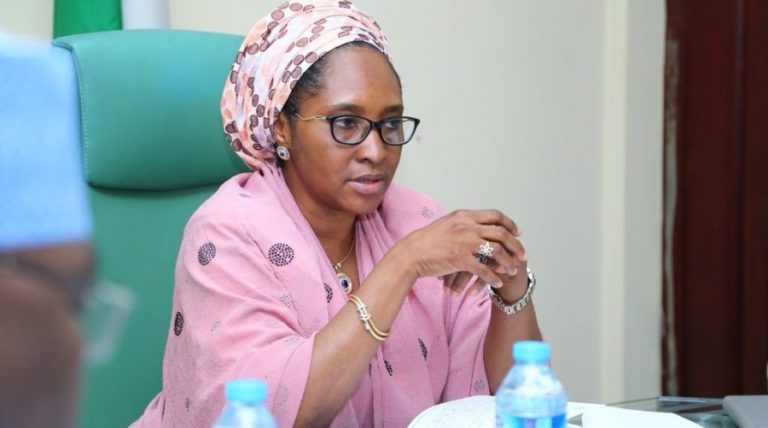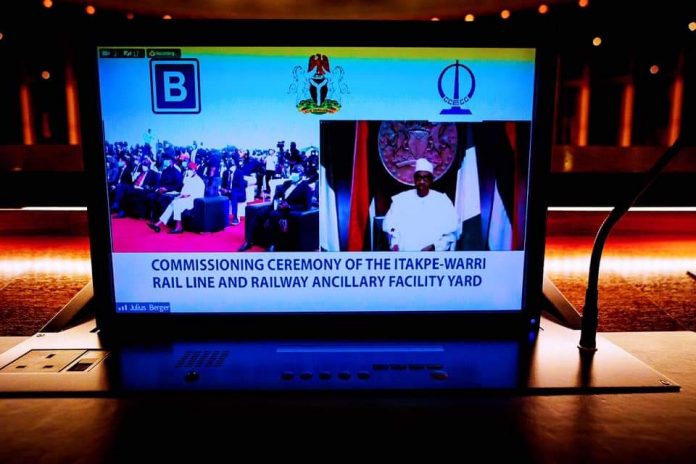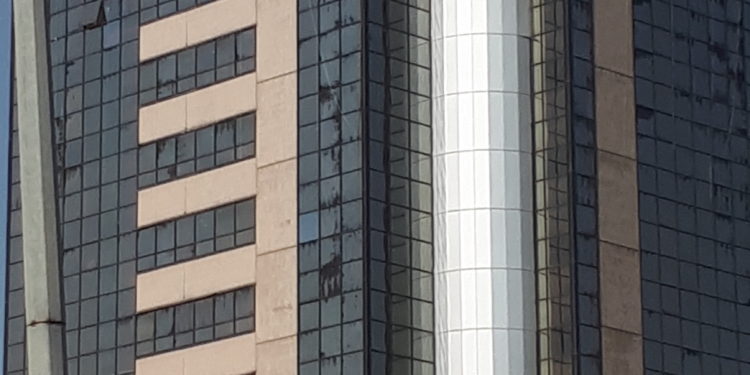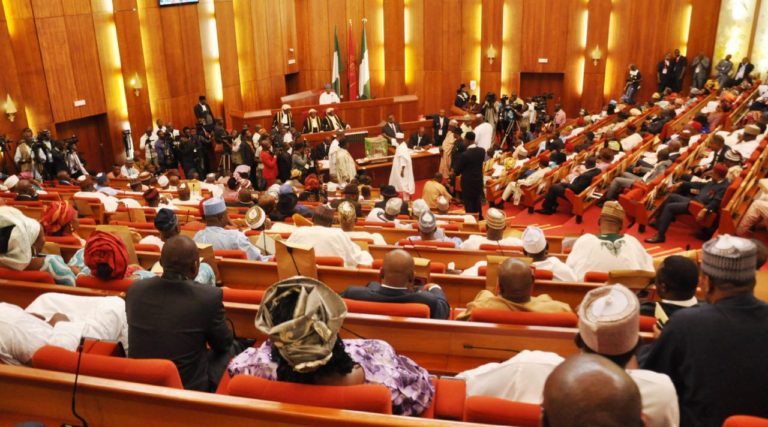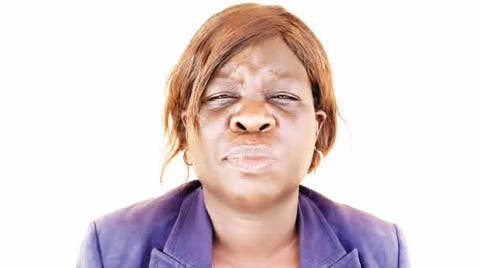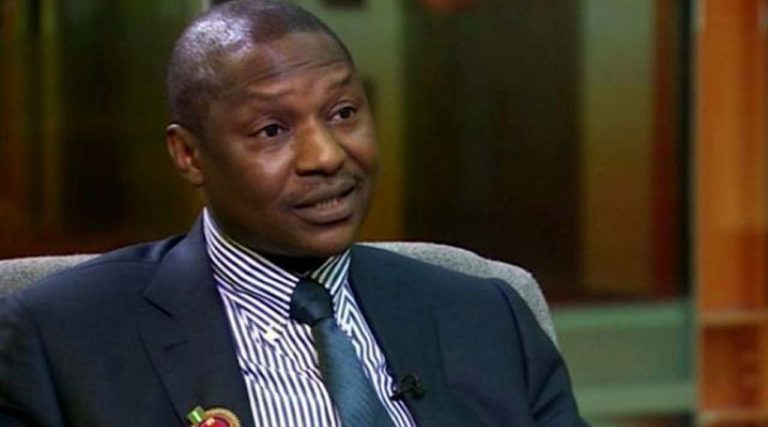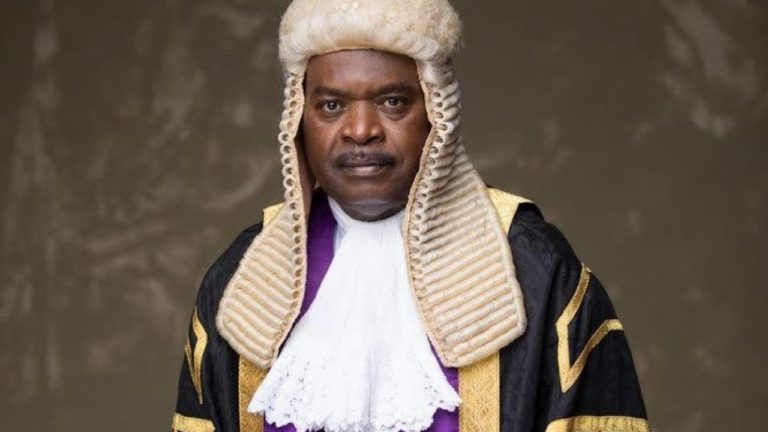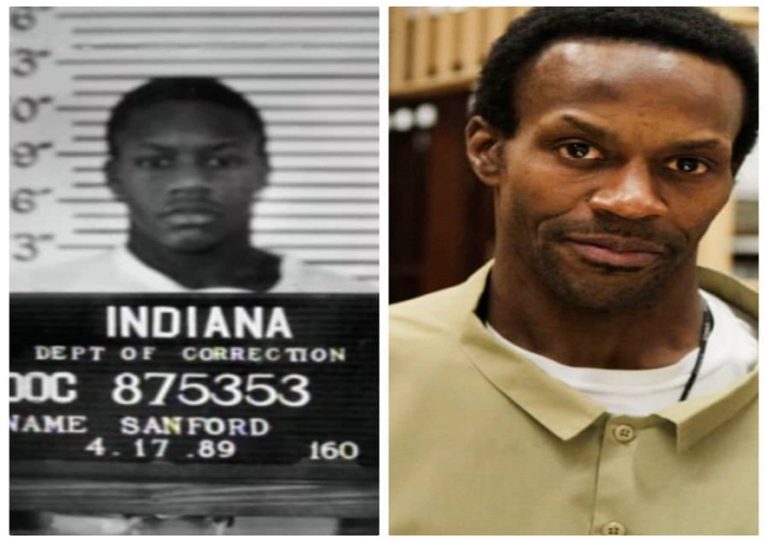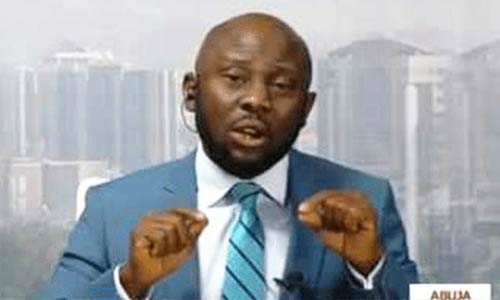A human rights lawyer and Activist, Mr. Joseph Onu Silas has proposed amendment of the Constitution of the Federal Republic of Nigeria, 1999, to prohibit elevation of judges from one court to another.
Silas, in a letter addressed to the Deputy Senate President and Chairman, Senate Committee On Ad-Hoc Committee on Review of the 1999 Constitution, sighted by TheNigeriaLawyer (TNL), also proposed the expansion of the Jurisdiction of the Supreme Court of Nigeria to make the court the first and last court to entertain petitions arising from Presidential elections.
He added that all Justices of the Supreme Court should sit in the Presidential Election Petition cases and deliver ruling without room for reserving judgment.
Furthermore, Silas proposed exclusion of judges from the membership of National Judicial Council.
Read the full proposal below:
Most Distinguished Senator Ovie Omo-Agege, 25th September, 2020.
Deputy Senate President & Chairman,
Senate Ad-Hoc Committee
On Review of the 1999 Constitution.
SCRC9 Secretariat, Room 0.28,
Senate Wing, National Assembly Complex,
Abuja.
Phone: 08033109357, 08097522601
Email: [email protected]
Most Distinguished sir,
RE: REVIEW OF THE 1999 CONSTITUTION OF THE FEDERAL REPUBLIC OF NIGERIA: CALL FOR PROPOSALS OR MEMORANDA.
PROPOSAL FOR A COMPREHENSIVE JUDICIAL REFORM
I sincerely thank the Committee for such an opportunity to submit proposals on a comprehensive reform of the Nigerian Judiciary with the aim of bringing the Nigerian Judiciary in-line with global best practices and enhance the delivery of equal justice to all citizens and entities who rely on the judiciary. Let me also congratulate the members of this Committee for being part of a history making assignment, as you undertake this onerous task on behalf of the nation, it is my fervent prayer that God will strengthen each and every one of you and grant each of you the wisdom to discharge this responsibility for the greater good Nigeria and its citizens.
Before I proceed to make my proposals, permit me to introduce myself. My name is SILAS, Joseph Onu, a legal practitioner with a passion for Constitutional law. I am a native of Amenu, in Uburu community of Ohaozara Local Government Area, Ebonyi State. I reside and practice my profession in the Federal Capital Territory, Abuja.
The following are my proposal for a comprehensive reform of the Nigerian Judiciary in the light of the call for proposals or memoranda by the Committee. My proposals are preceded by the challenges necessitating them.
1. QUALIFICATION AND MODE OF APPOINTMENT INTO THE JUDICIARY AS PRESENTLY INTENDED BY THE 1999 CONSTITUTION:
1.1. As presently provided, sections 231 (2) & (3); 238 (2) & (3); 250 (2) & (3) and 256 (3) of the Constitution, set the qualifications for appointment as a Justice of the Supreme Court, Justice of the Court of Appeal, a Judge of the Federal High Court and as a Judge of a High Court in Nigeria to be someone qualified to PRACTICE AS A LEGAL PRACTITIONER IN NIGERIA AND HAS BEEN SO QUALIFIED FOR A PERIOD OF NOT LESS THAN 15 years, 12 years, 10 years and 10 years, respectively.
1.2. It therefore entails that, as presently provided, it is correct to state that the Constitution has no provision for promotion of Judges from one Court into another. The framers of our Constitution intended for Nigeria to have a vibrant Judiciary, where individual legal practitioners with the requisite qualification are free to apply for appointment into any of the above listed Court, without first being a judge.
1.3. It is also correct to hold that the framers of our Constitution, knowing that we are copying the American political system, intended to have an incorruptible Judiciary, one that does not present any judge with the likelihood of an ambitious career progression over and above the need to dispense justice for the people and nation. This is so, as a judge who understands that his chances of getting to a higher Court is not based solely on his performance as a judge, but other political and convivial dispositions he or she is able to attain during his or her time in a particular Court. This gives room to judges of lower Courts to play ball so as to attain career progression with hopes of ending up in the Supreme Court. Today, this appears to be the norm as judges who support certain political cases are naturally and unconstitutionally “elevated” to the Supreme Court. An example is the present list of those being appointed to the Supreme Court, a good number of them participated in the 2019 Presidential Election Petition Court – is that a reward?
1.4. It is my firm position that the 1999 Constitution as presently provided, intends that the appointment of persons into any of the Courts must be drawn from the pool of legal practitioners and not from existing judges. A judge’s appointment is done once until retirement. The judiciary is not Civil Service, where promotion to higher Court have become a norm. Each of these Courts is distinct and with a clear qualification for appointment.
1.5. It is important to state here that the Constitution did not donate any power on the National Judicial Council to expand the qualification stated above or enlist other criteria to replace legal practice as intended above. Therefore, any rule made by the National Judicial Council for the purposes of “elevating or promoting” a Chief Magistrate to the position of a High Court Judge (Federal of State), or a High Court Judge (Federal of State), to the position of a Justice of the Court of Appeal, or a Justice of the Court of Appeal to a Justice of the Supreme Court is illegal as it is unconstitutional.
1.6. The practice, as it is currently done, is a combination of hangovers from our colonial and military past, as it has no place in the 1999 Constitution for a very good reason.
1.7. One of the reasons the 1999 Constitution is framed as it is, is to strengthen each of these Courts and make them independent of each other, while also ensuring professionalism. Today, the ambition of a High Court Judge to be elevated almost always obscures his or her ability to do justice as it is intended, without looking above his or her shoulders. When a Judge knows that his or her appointment into any particular Court is non-transferable until retirement, he or she is more likely to be very focused on the core responsibility of that office.
1.8. Therefore, it is my proposal that this committee should consider and include a phrase under each of the qualification for appointment as a judge of any of these Courts to reflect that such an appointment is not TRANSFERABLE by either elevation, promotion or another appointment. Such a provision in our constitution will serve to protect the sanctity of the current philosophy of the Constitution. An example is:
“A person shall not be qualified to hold the office of a Justice of the Court of Appeal unless he is qualified to practice as a legal practitioner in Nigeria and has been so qualified for a period of not less than twelve years. This appointment is permanent for this Court until resignation, death or retirement.”
Same addition should be replicated for all other Courts.
1.9. The benefit of such an amendment will be a vibrant judiciary that is open to critical radical new ideas that are needed for the transformation of our nation towards the much needed development that we all desire. By opening up the space presently conserved by a few, for all qualified citizens, the nation will be greater for it.
2. JURISDICTION AND CONSTITUTION OF THE SUPREME COURT:
2.1. The present original jurisdiction of the Supreme Court need to be reviewed with the aim of expanding it and also consider the reduction of Appeals to the Supreme Court.
2.2. Currently, the Supreme Court’s original jurisdiction bothers on disputes between the Federation and a State or between States if and in so far as that dispute involves any question (whether of law or fact) on which the existence or extent of a legal right depends.
2.3. The Constitution also allows the National Assembly to expand the original jurisdiction of the Supreme Court provided such additional jurisdiction is not regarding any criminal matter.
2.4. It will suffice to state that the Supreme Court is overburdened with cases today, most of which did not arise from the Court’s original jurisdiction. The Court has become more of an appellate Court than what it was originally created for – a Constitutional Court. The original jurisdiction of the Supreme Court is to hear and determine questions arising from disputes between one State of the Federation and another or between the Federal government and a State – it is the Court of government.
2.5. Unarguably, election cases has become the greatest threat to the peace and security of Nigeria, especially the Presidential Election. The history of Nigeria is replete with Presidential Election Petitions that ended in the Supreme Court with so much controversy afterwards. This trend has dampened the confidence of Nigerians, including the politicians, in our judiciary as it appears to be incapable of doing justice in such cases. It is often the case that Nigerians strongly believe that the Courts are undermined by the sitting government in the discharge of its judicial duty.
2.6. My focus is only regarding the Presidential Election Petition. Presently, the Court of Appeal has the original jurisdiction to hear and determine any question as to whether (a) any person has been validly elected to the office of the President or Vice-President under the 1999 Constitution, (b) determine the term of office of President or Vice-President, (c) determine when the office of President or Vice-President has become vacant.
2.7. The 2019 Presidential Election Petition Court has, once again, raised the fears of Nigerians on the ability of the Court of Appeal to handle such a nationally very sensitive cases. Firstly, the question of predisposed constitution of the panel was such a heated matter as the Constitution, as if unconcerned with the importance of the presidential election, allows a minimum of three (3) justices of the Court of Appeal to sit and determine such an issue of utmost national importance. The choice of those who sat, 5 members, wasn’t reflective of the national sensitivities of Nigerians as the regions were completely left out of the panel. This raised a concern and Nigerians didn’t expect much from the Court.
2.8. Then, the issue of the presiding Justice recusing herself for likelihood of bias was formally tabled before the court. This brought home the fears of Nigerians that this Court is incapable of handling such a sensitive case. Nigerians saw the drama that the Court of Appeal engaged the entire nation with and then in a bizarre twist, the request was unwillingly granted. That Court of Appeal clearly appeared to be deeply interested in an outcome, which many believed was eventually achieved.
2.9. It is for the reasons above that I am proposing the expansion of the Supreme Court Original Jurisdiction by removing the original jurisdiction of the Court of Appeal and giving same to the Supreme Court. This will make the Supreme Court the first and final Court for Presidential Election Petition, thereby saving the entire nation time and res0urces.
2.10. The importance of a Presidential Election cannot be undermined by the way disputes arising therefrom are handled. This is a national duty that is capable of threatening the corporate existence of the nation and must therefore be handled with such importance.
2.11. Presidential Election is held across the 774, 000 Local Government Areas of Nigeria and any petition arising therefrom is also caught up with the 180 days rule. The life-cycle of the petition is the same with that of a State House of Assembly. This 180 days is presently almost completely wasted at the Court of Appeal, leaving the Supreme Court with little or no time to hear and determine any appeal arising therefrom.
2.12. The 2019 Presidential Election Petition Appeal, of which I was a member of the legal team, was more of a drama in the Supreme Court than an Appeal. The Court was poised to dismissing the Appeal without arguments or any hearing within 10 minutes. All they needed to do was to uphold whatever the Court of Appeal has done and then dismiss the Appeal. This, in my view, was a travesty and is capable to leading this nation into crisis if not checked. Eventually, the main Appeal was dismissed with “reserved” reasons, while 8 other interlocutory Appeals, necessary for the effectual determination of the main Appeal, was never heard or determined even as I write this proposal. Those appeals are still pending in the Supreme Court.
2.13. The above happened because the Supreme Court wasn’t willing to rock the boat, since the Court of Appeal decision somehow did not rock the boat. However, it was very clear to all that justice was mocked in that proceeding, beginning from the Court of Appeal right up to the Supreme Court. Why was the Supreme Court incapable of doing justice in that case? My answer will lead me to my second point on this proposal.
2.14. Firstly, the Supreme Court Justices on that panel did not, in all sincerity, critically study the briefs before them. This could be because of the limited time available to do so or some other reasons unknown to me. However, one thing was clear to all during the proceeding and it was that the Justices on that panel did not appreciate the petition, much more the appeal therefrom. So, time was a factor that created a leeway for injustice. The Supreme judgment is available for public digest.
2.15. Secondly, to my second point under this proposal, the Supreme Court was weakened by the present method of sitting to hear and determine questions arising from a Constitutional dispute. The Constitution allows the Chief Justice of Nigeria to select those who will sit and determine any matter before the Court. For a Presidential Election Appeal, a minimum of five (5) Justices will suffice. This practice is open to serious abuse and the perpetration of injustice, should a Chief Justice have a political bias for a given candidate or political party and just like the Court of Appeal, the panel constituted by the Chief Justice of Nigeria was insensitive to the geographical disposition of Nigeria.
2.16. Therefore, in order to have a judiciary that will enjoy the confidence of Nigerians, especially political actors, in the pursuit of Constitutional rights after an important election as the Presidential Election, it is important not just to expand the original jurisdiction of the Supreme Court as proposed in paragraph 2.9 (supra), but to also expand the constitution of the Court whenever it is sitting to hear and determine any constitutional matter, by taking away the latitude of the Chief Justice of Nigeria to influence the outcome in any way, shape or form.
2.17. My proposal on the Constitution of the Supreme Court whenever it sits to hear any matter arising from the Constitution, which includes Presidential Election Petition, all the Justices of the Court will sit, hear and determine such cases without reserving judgment or the reason thereof. That is to say, that a full and final decision must be delivered on the same day that hearing is concluded. This is possible as all arguments, evidence and exhibits are usually frontloaded to the Court.
2.18. Every person appointed into any Supreme Court all over the world is so appointed to have a say on any Constitutional question that is brought before such a Court. The practice of selecting some justices to decide our collective destiny is abnormal. The interpretation of our Constitutional provisions and cases arising therefrom is a collective duty of the entire justices of the Supreme Court as a body, not of a select few, just as the amendment of our Constitution is a collective duty of the National Assembly and those of States. Such is the importance of our Constitution.
2.19. The present arrangement was given by the military and does not protect the nation from the wiles of a possible unscrupulous Chief Justice.
3. REFORM OF THE NATIONAL JUDICIAL COUNCIL:
3.1. The National Judicial Council is a creation of the 1999 Constitution under Executive Bodies as provided for in the Third Schedule to the Constitution, with powers to manage and discipline judicial officers – Judges and Justices.
3.2. It is unfortunate that the first 8 provisions dealing with the membership of the National Judicial Council created an impossibility for the Council’s ability to effectively discharge its duties without fear or favour to ALL.
3.3. One of the most common Latin maxims any law student will readily recite is “Nemo Judex in causa sua” which translates literally to mean, “No-one is a judge in his own cause”. This principle of natural justice entails that no one can judge a case in which he/she or they have an interest in.
3.4. If one of the core responsibilities of the National Judicial Council includes the exercise of disciplinary control of judges and justices, will it be proper for any judge or justice to be a member of such a council? In my humble opinion, it is improper to have a judge sitting in a council that will likely receive compliant against him or her.
3.5. Recently, the entire nation was thrown into legal crises when the Presidency removed the Chief Justice of Nigeria through the Code of Conduct Tribunal. A procedure alien to our laws, which negatively impacted on the independence of the judiciary. This resort to desperation became necessary because it is presently impossible to put a sitting Chief Justice of Nigeria under any form of check or disciplinary control. The powers of the Chief Justice exceeds that of a judicial officer, same with other judges or justices who are members of the Council. They enjoy so much protection to do as they will.
3.6. The need to remove all judicial officers from the National Judicial Council is now greater than ever. The indiscipline on the Bench has reached its highest level. Even judges who are not members of the Council, but enjoy the protection of members see themselves as untouchables. They do as they will in the Court room without sanction. They sit when they want and speak like gods to litigants and lawyers alike. Only a few humble and just judges are present in our Courts, across board. This is as a result of a total absence of independent control of judges.
3.7. Therefore, it is my proposal that Judges and Justice presently listed as members of the National Judicial Council in whatever capacity they are occupying such membership of the Council, should be removed. They are to be replaced by religious organizations, civil society organizations and other groups who are considered as critical stakeholders of the justice sector. This will give room for individuals to freely complain against any judicial officer, including the Chief Justice of Nigeria, without harboring the fear of bias.
Distinguish Senators, above are my most humble proposals. They are made in the overall interest of our nation and I do hope that you will consider them during your deliberations.
Thank you very much.
SILAS, Joseph Onu, Esq.
Legal Practitioner,
Convener, Open Bar Initiative.
No. 28A Ganges Street, Maitama – Abuja.
Phone: 0818 101 6112
Email: [email protected]

